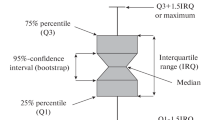Abstract
The knapsack problem is well known to be NP-complete. Due to its importance in cryptosystem and in number theory, in the past two decades, much effort has been made in order to find techniques that could lead to practical algorithms with reasonable running time. This paper proposes a new parallel algorithm for the knapsack problem where the optimal merging algorithm is adopted. The proposed algorithm is based on anEREW-SIMD machine with shared memory. It is proved that the proposed algorithm is both optimal and the first without memory conflicts algorithm for the knapsack problem. The comparisons of algorithm performance show that it is an improvement over the past researches.
Similar content being viewed by others
References
Garey M R, Johnson D S. Computer and Intractability: A Guide to the Theory of NP-Completeness. San Francisco, W H Freeman and Co., 1979.
Shamir A. A polynomial-time algorithm for breaking the basic Merkle-Hellman cryptosystem.IEEE Trans. Inform. Theory, 1984, 30(5): 699–704.
Chor B, Rivest R L. A knapsack-type public key cryptosystem based on arithmetic in finite fields.IEEE Trans. Inform. Theory, 1988, 34(5): 901–909.
Laih C S, Lee J Y, Harin L, Su Y K. Linearly shift knapsack public-key cryptosystem.IEEE J. Selected Areas Commun, 1989, 7(4): 534–539.
Horowitz E, Sahni S. Computing partitions with applications to the knapsack problem.J. ACM, 1974, 21(2): 277–292.
Aardal K, Bixby R E, Hurkens C A J, Lensta A Ket al. Market split and basis reduction: Towards a solution of the Cornuejils-Dawande instances. InThe 7th International IPCO Conference, 1999,Lecture Notes in Computer Science 1610, pp.1–16.
Schroeppel R, Shamir A.A T= 2n/2 , S=O 2n/4) algorithm for certain NP-complete problems.SIAM J. Comput., 1981, 10(3): 456–464.
Ferreira A G. A parallel time/hardware tradeoffT ·H = O(2 n/2) for the knapsack problem.IEEE Trans. Comput., 1991, 40(2): 221–225.
Karnin E D. A parallel algorithm for the knapsack problem.IEEE Trans, Comput., 1984, 33(5): 404–408.
Amirazizi H R, Hellman M E. Time-memory-processor tradeoffs.IEEE Trans. Inform. Theory, 1988, 34(3): 502–512.
Ferreira A G. Work and memory efficient parallel algorithms for the knapsack problem.International Journal of High Speed Computing, 1995, 4: 595–606.
Chang H K C, Chen J J R, Shyu S J. A parallel algorithm for the knapsack problem using a generation and searching technique.Parallel Computing, 1994, 20(2): 233–243.
Lou D C, Chang C C. A paralle two-list algorithm for the knapsack problem.Parallel Computing, 1997, 22: 1985–1996.
Aanches C A A, Soma N Y, Yanasse H H. Comments on parallel algorithms for the knapsack problem.Parallel Computing, 2002, 28: 1501–1505.
Ferreira A G, Robson J M. Fast and scalable parallel algorithms for knapsack-like problems.Journal of Parallel and Distributed Computing, 1996, 39: 1–13.
Quinn M J. Parallel Computing: Theory and Practice. Second Edition. New York, Mcgraw-Hill, Inc., 1994.
Akl S G. Optimal parallel merging and sorting without memory conflicts.IEEE Trans, Comput., 1987, 36(11): 1367–1369.
Author information
Authors and Affiliations
Corresponding author
Additional information
Supported by the National Natural Science Foundation of China under Grant No.60273075, the National High Technology Development 863 Program of China under Grant No.863-306-ZD-11-01-06.
Ken-Li Li received his B.S. and M.S. degrees in mathematics from National University of Defense Technology and Central South University in 1995 and 2000 respectively and he is now a Ph.D. candidate in computer software and theory at Huazhong University of Science and Technology. His main research interests include parallel computing and combinatorial optimization.
Ren-Fa Li received his Ph.D. degree in computer software and theory at Huazhong University of Science and Technology, and he is concurrently a professor and Ph.D. supervisor in School of Computer and Communication, Human University. His main research interests include network computing.
Qing-Hua Li received his M.S. degree in computer science from Huazhong University of Science and Technology in 1981, and he is concurrently a professor and Ph.D. supervisor in School of Computer Science and Technology, Huazhong University of Science and Technology. His current research interests include parallel processing, combinatorial optimization, and grid computing.
Rights and permissions
About this article
Cite this article
Li, KL., Li, RF. & Li, QH. Optimal parallel algorithms for the knapsack problem without memory conflicts. J. Comput. Sci. & Technol. 19, 760–768 (2004). https://doi.org/10.1007/BF02973436
Received:
Revised:
Published:
Issue Date:
DOI: https://doi.org/10.1007/BF02973436




